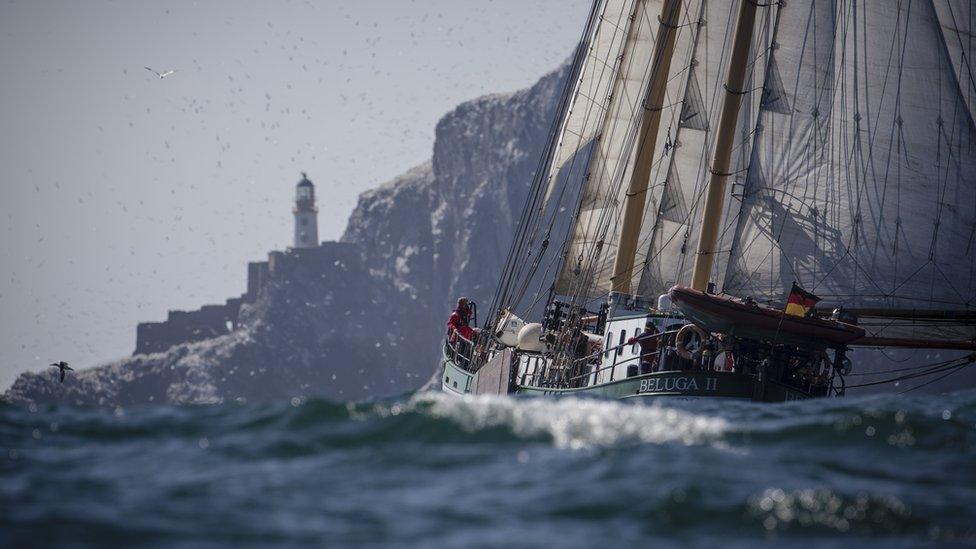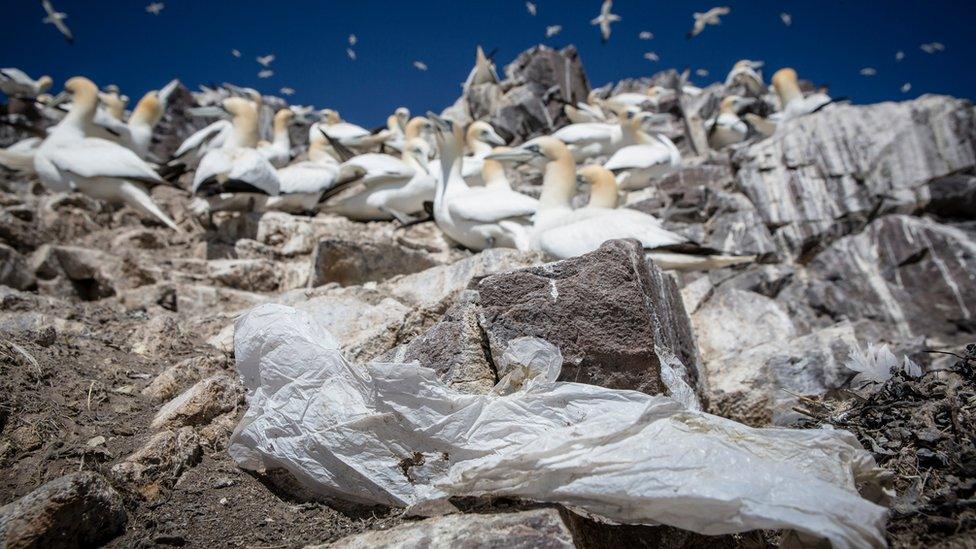Microplastics found in Scottish waters
- Published

The crew spent two months surveying Scotland's coastline
Microplastic contamination has been found in most of the samples tested during a Greenpeace survey of Scottish coastal waters.
The environment campaign group said the pollution was a potential threat to birds, fish and other wildlife.
But the tests indicated lower levels of contamination than in many other areas of the world's oceans.
The detailed findings, external were published by Greenpeace following its 2017 ship tour of Scotland.
Microplastics are small plastic items less than 5mm in length.
Greenpeace scientists on the MV Beluga II collected 49 samples from 27 different locations around the Scottish coast.
The organisation has claimed it had gathered more data on plastic pollution in Scottish waters than any previously published survey.
Tests carried out on the 49 samples found microplastics in 31 of them.

Microplastics can come from large plastic items as they degrade or can originate as small particles used in beauty products
Greenpeace UK campaigner Tisha Brown said: "Although microplastics were found in two out of three samples, this isn't all bad news.
"The concentrations are lower than in many other regions of the world's oceans, and hopefully Scottish marine life is at a proportionately lower risk than marine life in those areas.
"However, the results varied significantly in unpredictable ways, and so we would need longer-term testing to be confident of average concentrations."
Greenpeace said microplastics can absorb or attract substantial concentrations of chemical additives and contaminants.
Some of them can affect animal reproduction and are suspected of having hormone-disrupting properties.
Ms Brown added: "But the key finding here is that microplastics are present in some of Scotland's most remote and unspoilt waters.
"Threatened seabirds and other wildlife are already exposed to them, along with the fish stocks we eat, and there is currently no coherent process or even plan to stop this problem from getting worse."
- Published27 June 2017
